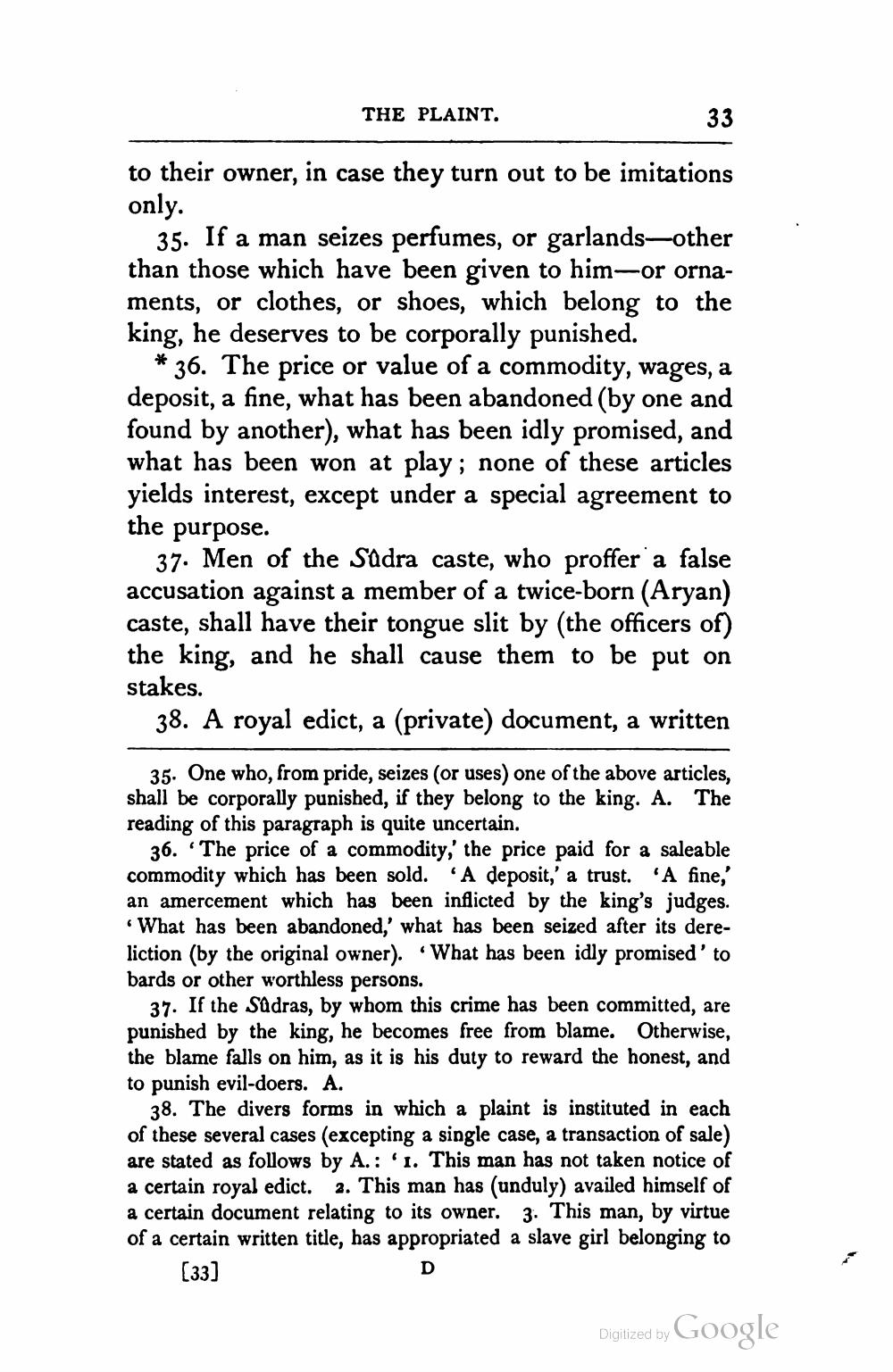________________
THE PLAINT.
to their owner, in case they turn out to be imitations only.
35. If a man seizes perfumes, or garlands—other than those which have been given to him-or ornaments, or clothes, or shoes, which belong to the king, he deserves to be corporally punished.
* 36. The price or value of a commodity, wages, a deposit, a fine, what has been abandoned (by one and found by another), what has been idly promised, and what has been won at play; none of these articles yields interest, except under a special agreement to the purpose.
37. Men of the Sadra caste, who proffer a false accusation against a member of a twice-born (Aryan) caste, shall have their tongue slit by (the officers of) the king, and he shall cause them to be put on stakes.
38. A royal edict, a (private) document, a written
35. One who, from pride, seizes (or uses) one of the above articles, shall be corporally punished, if they belong to the king. A. The reading of this paragraph is quite uncertain.
36. The price of a commodity,' the price paid for a saleable commodity which has been sold. 'A deposit,' a trust. A fine, an amercement which has been inflicted by the king's judges. •What has been abandoned,' what has been seized after its dereliction (by the original owner). What has been idly promised' to bards or other worthless persons.
37. If the Sadras, by whom this crime has been committed, are punished by the king, he becomes free from blame. Otherwise, the blame falls on him, as it is his duty to reward the honest, and to punish evil-doers. A.
38. The divers forms in which a plaint is instituted in each of these several cases (excepting a single case, a transaction of sale) are stated as follows by A.: '1. This man has not taken notice of a certain royal edict. 2. This man has (unduly) availed himself of a certain document relating to its owner. 3. This man, by virtue of a certain written title, has appropriated a slave girl belonging to
[33]
Digitized by Google




